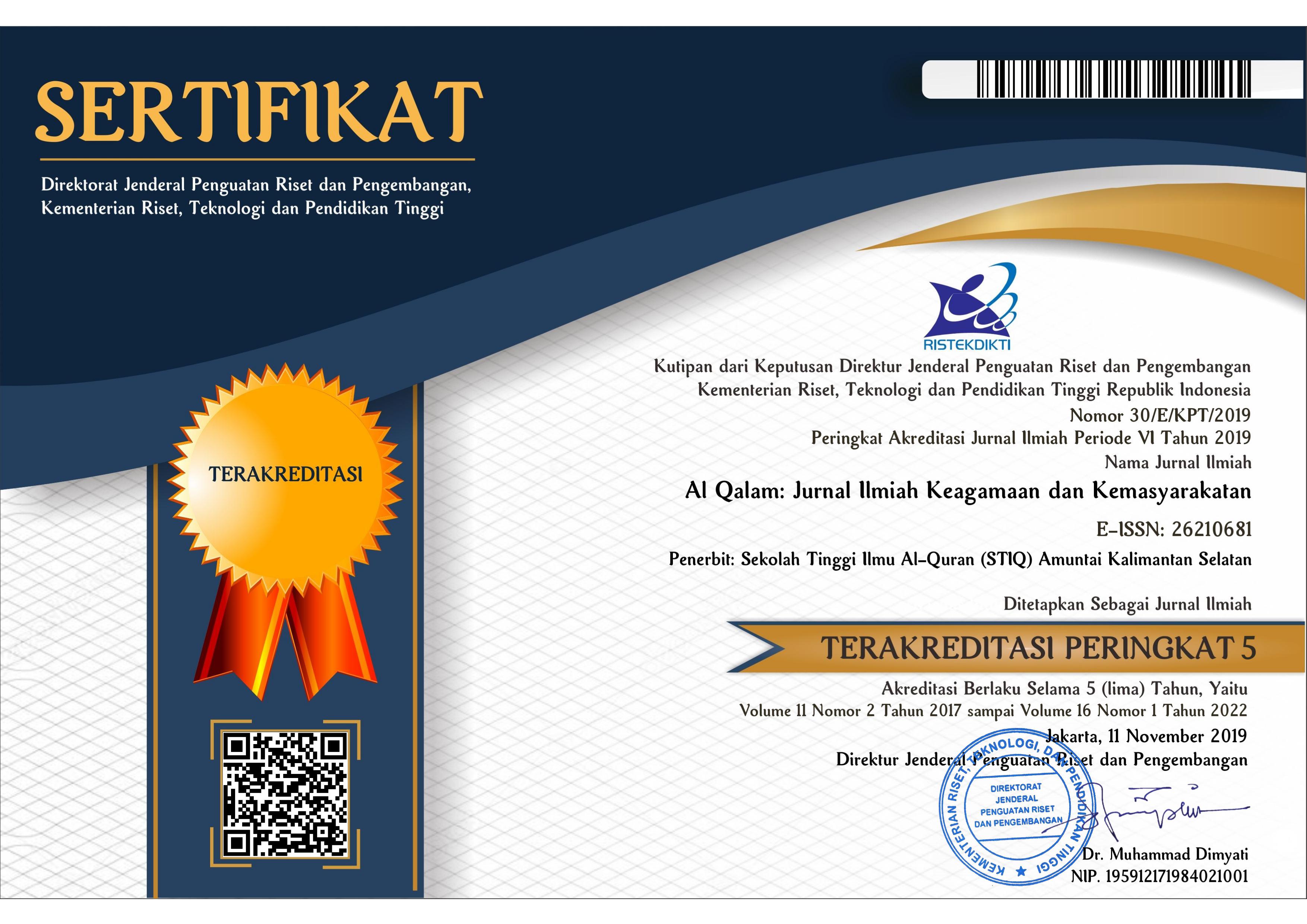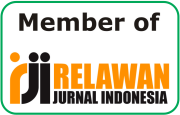Product Overview Sentiment Analysis Using Lexicon Hybrid-Based Approach and Machine Learning
Abstract
Keywords
Full Text:
PDFReferences
Agarwal, Sanjana, Nirav Jain, and Surekha Dholay. “Adaptive Testing and Performance Analysis Using Naive Bayes Classifier.” Procedia Computer Science, International Conference on Advanced Computing Technologies and Applications (ICACTA), 45 (2015). https://doi.org/10.1016/j.procs.2015.03.088.
Appel, Orestes, Francisco Chiclana, Jenny Carter, and Hamido Fujita. “A Hybrid Approach to the Sentiment Analysis Problem at the Sentence Level.” Knowledge-Based Systems, New Avenues in Knowledge Bases for Natural Language Processing, 108 (2016). https://doi.org/10.1016/j.knosys.2016.05.040.
Asghar, Nabiha. “Yelp Dataset Challenge: Review Rating Prediction,” 2016. https://doi.org/10.48550/arXiv.1605.05362.
Chahal, Ayushi, Preeti Gulia, and Department of Computer Science and Applications, Maharishi Dayanand University, Rohtak, India. “Machine Learning and Deep Learning.” International Journal of Innovative Technology and Exploring Engineering 8, no. 12 (2019). https://doi.org/10.35940/ijitee.L3550.1081219.
Chen, Li, Guanliang Chen, and Feng Wang. “Recommender Systems Based On User Reviews: The State of The Art.” User Modeling and User-Adapted Interaction 25, no. 2 (2015). https://doi.org/10.1007/s11257-015-9155-5.
Chen, Ning, Jialiu Lin, Steven C. H. Hoi, Xiaokui Xiao, and Boshen Zhang. “AR-Miner : Mining Informative Reviews for Developers from Mobile App Marketplace.” In Proceedings of the 36th International Conference on Software Engineering. ICSE 2014. New York, NY, USA: Association for Computing Machinery, 2014. https://doi.org/10.1145/2568225.2568263.
Erşahin, B., Ö. Aktaş, D. Kilinç, and M. Erşahin. “A Hybrid Sentiment Analysis Method for Turkish.” Turkish Journal of Electrical Engineering and Computer Sciences 27, no. 3 (2019). https://doi.org/10.3906/elk-1808-189.
Fauzi, M. Ali. “Random Forest Approach for Sentiment Analysis in Indonesian Language.” Indonesian Journal of Electrical Engineering and Computer Science 12, no. 1 (2018). https://doi.org/10.11591/ijeecs.v12.i1.pp46-50.
Heikal, Maha, Marwan Torki, and Nagwa El-Makky. “Sentiment Analysis of Arabic Tweets Using Deep Learning.” Procedia Computer Science, Arabic Computational Linguistics, 142 (2018). https://doi.org/10.1016/j.procs.2018.10.466.
Jagdale, Rajkumar S., Vishal S. Shirsat, and Sachin N. Deshmukh. “Review on Sentiment Lexicons,” 2018. https://doi.org/10.1109/CESYS.2018.8723913.
Janjua, Sadaf Hussain, Ghazanfar Farooq Siddiqui, Muddassar Azam Sindhu, and Umer Rashid. “Multi-Level Aspect Based Sentiment Classification of Twitter Data: Using Hybrid Approach In Deep Learning.” PeerJ Computer Science 7 (2021). https://doi.org/10.7717/peerj-cs.433.
Mahadevan, A., and M. Arock. “Integrated Topic Modeling and Sentiment Analysis: A Review Rating Prediction Approach For Recommender Systems.” Turkish Journal of Electrical Engineering and Computer Sciences 28, no. 1 (2020). https://doi.org/10.3906/elk-1905-114.
Malandrakis, Nikolaos, Abe Kazemzadeh, Alexandros Potamianos, and Shrikanth Narayanan. “SAIL: A Hybrid Approach to Sentiment Analysis.” In Second Joint Conference on Lexical and Computational Semantics (*SEM), Volume 2: Proceedings of the Seventh International Workshop on Semantic Evaluation (SemEval 2013). Atlanta, Georgia, USA: Association for Computational Linguistics, 2013.
Martin, William, Federica Sarro, Yue Jia, Yuanyuan Zhang, and Mark Harman. “A Survey of App Store Analysis for Software Engineering.” IEEE Transactions on Software Engineering 43, no. 9 (2017). https://doi.org/10.1109/TSE.2016.2630689.
Medhat, Walaa, Ahmed Hassan, and Hoda Korashy. “Sentiment Analysis Algorithms and Applications: A Survey.” Ain Shams Engineering Journal 5, no. 4 (2014). https://doi.org/10.1016/j.asej.2014.04.011.
Mudinas, Andrius, Dell Zhang, and Mark Levene. “Combining Lexicon and Learning Based Approaches for Concept-Level Sentiment Analysis.” In Proceedings of the First International Workshop on Issues of Sentiment Discovery and Opinion Mining. WISDOM ’12. New York, NY, USA: Association for Computing Machinery, 2012. https://doi.org/10.1145/2346676.2346681.
Pagano, Dennis, and Walid Maalej. “User Feedback In the Appstore: An Empirical Study.” In 2013 21st IEEE International Requirements Engineering Conference (RE), 2013. https://doi.org/10.1109/RE.2013.6636712.
Pasupa, Kitsuchart, and Thititorn Seneewong Na Ayutthaya. “Hybrid Deep Learning Models for Thai Sentiment Analysis.” Cognitive Computation 14, no. 1 (2022). https://doi.org/10.1007/s12559-020-09770-0.
Patil, Harshal Pandharinath, Prajwal Arun Parekh, Tejaswini Rajendra Patil, and Punam Santosh Gangatire. “Sentiment Analysis of Text Feedback.” IJIRSET 11, no. 4 (2022).
Pise, Nitin, and Saurabh Dorle. “Sentiment Analysis Methods and Approach: Survey.” International Journal of Innovative Computer Science & Engineering 4, no. 6 (2017).
Ramasamy, Lakshmana Kumar, Seifedine Kadry, Yunyoung Nam, and Maytham N. Meqdad. “Performance Analysis of Sentiments in Twitter Dataset Using SVM Models.” International Journal of Electrical and Computer Engineering (IJECE) 11, no. 3 (2021). https://doi.org/10.11591/ijece.v11i3.pp2275-2284.
Sommar, Fredrik, and Milosz Wielondek. Combining Lexicon- and Learning-Based Approaches for Improved Performance and Convenience in Sentiment Classification, 2015.
Tang, Duyu, Furu Wei, Bing Qin, Ming Zhou, and Ting Liu. “Building Large-Scale Twitter-Specific Sentiment Lexicon : A Representation Learning Approach.” In Proceedings of COLING 2014, the 25th International Conference on Computational Linguistics: Technical Papers. Dublin, Ireland: Dublin City University and Association for Computational Linguistics, 2014.
Xiang, Bing, and Liang Zhou. “Improving Twitter Sentiment Analysis with Topic-Based Mixture Modeling and Semi-Supervised Training,” Vol. 2, 2014. https://doi.org/10.3115/v1/P14-2071.
DOI: http://dx.doi.org/10.35931/aq.v17i3.2131
Refbacks
- There are currently no refbacks.
Copyright (c) 2023 Al Qalam: Jurnal Ilmiah Keagamaan dan Kemasyarakatan
Al Qalam: Jurnal Ilmiah Keagamaan dan Kemasyarakatan
index by:
Publish by:
Sekolah Tinggi Ilmu Al-Qur'an Amuntai
Contact us:
Address: Jl. Rakha Pakapuran, Amuntai Utara
Kabupaten : Hulu Sungai Utara
Kode Pos : 71471
Provinsi : Kalimantan Selatan
Telephone : 085251613000
Email: hafizhihusinsungkar@gmail.com

This work is licensed under a Creative Commons Attribution 4.0 International License


